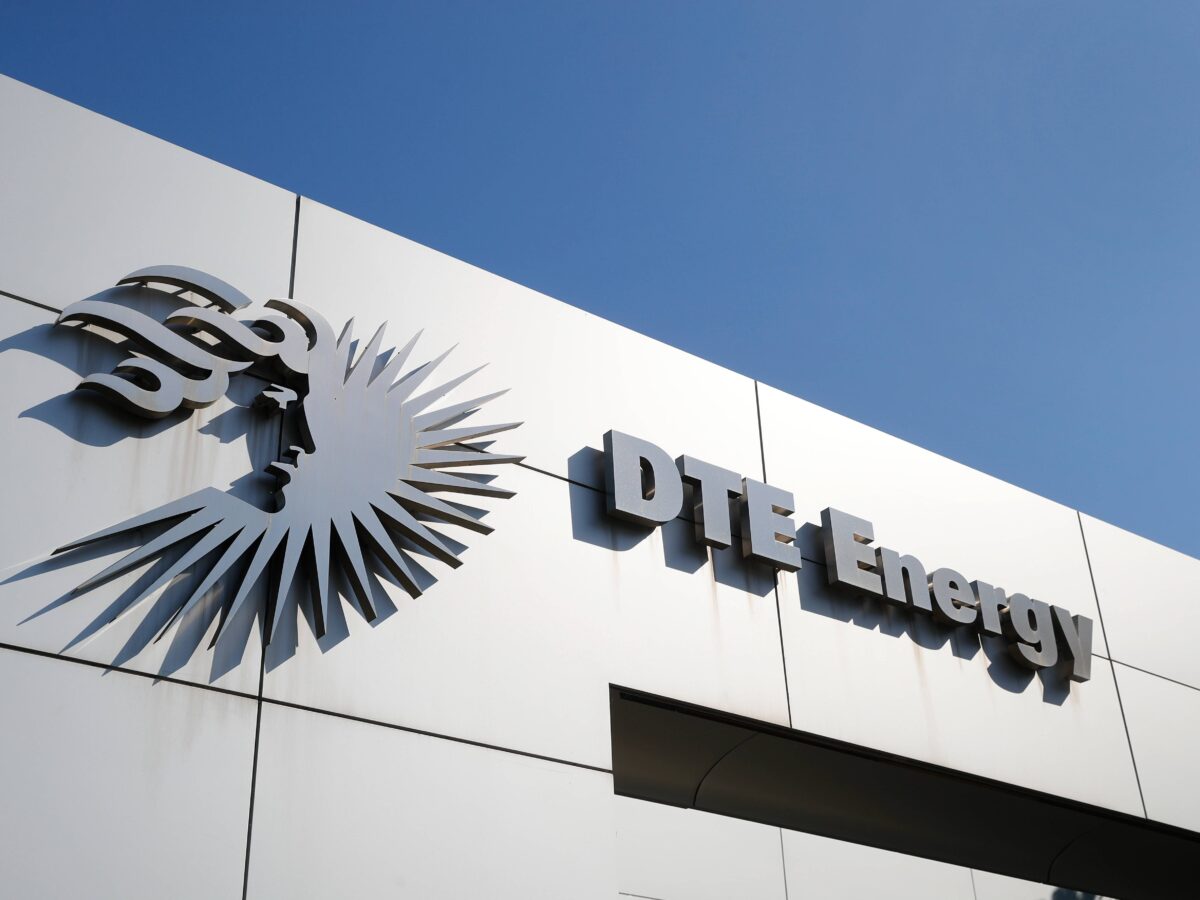Overview:
-The abrupt termination of Michigan's AmeriCorps funding by the Trump administration has halted the MI Healthy Climate Corps, affecting nonprofits, universities, and public agencies.
-Launched in March 2024, the Corps aimed to foster climate professionals and support Michigan's carbon neutrality goals by 2050.
-"We were doing a lot of projects directly working with the community," said Lucas Aguirre, who had been placed at Eastside Community Network in Detroit.
Michigan nonprofits, universities, and public agencies were ordered this week to suspend all work under the MI Healthy Climate Corps after the Trump administration terminated Michigan’s AmeriCorps funding.
The Michigan Community Service Commission, which oversees AmeriCorps programs in the state, issued a Stop Work Order following the federal decision.
The Community Economic Development Association of Michigan, or CEDAM, which manages the MHC Corps program, informed host sites and corps members of the order in an email sent late Monday. Members were instructed not to report for service beginning Tuesday, April 29. A copy of the email communication was shared with Planet Detroit.
“The Department will not pay for activities, Grantee’s incurred expenses or financial losses, or any additional compensation during a stop work period,” states the grant agreement cited in the memo.
The shutdown came less than two weeks after CEDAM had initially reassured partners that federal AmeriCorps agency changes would not immediately impact the MHC Corps.
In an April 18 email, CEDAM said that while National Civilian Community Corps teams were being demobilized, there was “no information at this time about how AmeriCorps State programs may be impacted,” and added, “We do not believe the current cohort will be affected.”
The sudden reversal has left many organizations scrambling.
Young clean energy professionals suddenly unemployed
Launched in March 2024, the MHC Corps was a partnership between the Michigan Department of Environment, Great Lakes, and Energy’s Office of Climate and Energy, the Michigan Community Service Commission, and CEDAM. The program aimed to build a network of climate professionals while helping Michigan meet the goals outlined in the MI Healthy Plan, which targets carbon neutrality by 2050.
The program initially placed 30 AmeriCorps members at host organizations for eight-month terms. A second cohort of 31 members began service in November 2024 and was expected to continue through October 2025. Each member served in a role tailored to their host organization, with all positions geared toward advancing the goals of the MI Healthy Climate Plan.
Corps members were working on a range of initiatives, including expanding public transit, conducting energy audits, recommending solar development sites, publishing green workforce guides, protecting shoreline ecosystems, and promoting food waste reduction. Other members supported projects aimed at building resilience in underserved communities.
Members were responsible for providing capacity support to their host sites, serving as community ambassadors for state and federal climate resources, and participating in professional development and leadership training opportunities. Benefits for members included a living allowance totaling $35,200 over the service term; biweekly direct deposits; an education award of $7,395 upon completion; fully covered health care, including dental, vision, and mental health; qualified student loan forbearance; and eligibility for interest accrual repayment. Members were required to serve full-time for about 40 hours per week and attend four statewide, in-person cohort meetings.
At Eastside Community Network in Detroit, Climate Corps member Lucas Aguirre had been coordinating multiple community-based sustainability projects. Aguirre was managing minigrants for mobility-related projects such as installing bike repair stations and mobile charging units, helping operate a community air quality monitoring program, and planning bike repair workshops and pop-up events.
Erin Stanley, a manager at ECN, said Aguirre was playing a leadership role in these initiatives, and losing him left a critical gap. “It feels very jolting,” Stanley said. “He was a key component of a lot of this work plan that we’ve been doing lately to try and keep things moving.”
Aguirre said he learned about the termination when he arrived at work on Tuesday. “Technically they said don’t even come in today and just stop working,” he said.
He expressed concern that programs supporting resident-led sustainability initiatives would lose momentum. “We were doing a lot of projects directly working with the community,” Aguirre said.
The shutdown is also affecting work at the Detroit 2030 District, where Climate Corps member Mason Christerfield had been providing technical assistance to building owners and managers to help them comply with Detroit’s building energy benchmarking ordinance.
Kendal Kuneman, executive director of the Detroit 2030 District, said Christerfield was a critical addition to their small team, adding full-time capacity to deliver work under a contract with the city’s Office of Sustainability. “Currently, I am the sole employee of the organization,” Kuneman said.
The broader AmeriCorps shutdown is affecting other nonprofits like Green Living Science. Natalie Jakub, executive director of the organization, said the cuts were “really upsetting” and emphasized that “small organizations rely on this capacity building significantly.” She added that many AmeriCorps members are young professionals who now must quickly find new ways to support themselves with little notice.
THE LATEST FROM
DTE files for $574 million rate hike, its second-largest request, months after its last increase
DTE Energy’s $574.1 million rate hike proposal aims to boost infrastructure and clean energy, raising Michigan residents’ bills by $13.50 monthly. Critics, including Michigan Attorney General Dana Nessel, challenge the plan, demanding proof that DTE’s expenses and rates are fair and justified.
USDA cuts rattle Detroit’s ‘resilient’ food pantries
In Detroit, a food distribution event at Pilgrim Baptist Church has been a lifeline for hundreds of families for over a decade. Recent cancellations of $4.3 million in state food bank orders due to USDA spending reshuffles have cast uncertainty over its future.
The art of recycling: Detroiter Donald Calloway’s creative process
Detroit artist Donald Calloway transforms discarded objects like chair stools and clock parts into vibrant art pieces, filling local galleries and his Grand Boulevard studio with sustainable creativity.
31 Michigan organizations lose AmeriCorps members
According to a December 2024 CEDAM blog post, several members from the first cohort have transitioned into full-time roles in environmental and community development.
Julia Cunnien was hired as a special projects manager at Michigan Saves, continuing work on community-based outreach frameworks. Avi Gurfinkel transitioned to Barr Engineering Co. as a data management technician after conducting energy benchmarking projects with the Detroit 2030 District. Dionna Brown became director of youth environmental justice programs at Young, Gifted, and Green, overseeing initiatives like the Flint Youth Environmental Council.
Michigan leads the Midwest and ranks sixth nationally in clean energy job growth, according to EGLE. State officials had positioned the MHC Corps as a key part of building workforce capacity to support the transition to a carbon-neutral economy.
CEDAM said it plans to provide members with resources, including access to the Member Assistance Program for mental health support. “We remain here to help in whatever way that we can,” wrote Sarah Teater, CEDAM’s director of capacity building, in the email to host sites and corps members.
The second MHC Corps cohort was placed with the following organizations:
- City of Eastpointe
- City of Grand Rapids
- City of Kalamazoo
- Community Housing Network, Troy
- Detroit 2030 District
- Eastside Community Network, Detroit
- EGLE Environmental Support Division
- EGLE Office of Climate and Energy
- EGLE Office of the Environmental Justice Public Advocate
- Grand Valley Metro Council, Grand Rapids
- Groundwork Center for Resilient Communities, Traverse City
- Ingham County
- Inter-Tribal Council of Michigan, Sault Ste. Marie
- Let’s Grow Michigan, Lansing
- Macomb County Planning and Economic Development
- Marquette County
- Michigan State University MassTimber@MSU
- Michigan AFL-CIO Workforce Development, Lansing
- Michigan Department of Agriculture and Rural Development
- Michigan Department of Labor and Economic Opportunity Community and Worker Economic Transition Office
- Michigan Department of Natural Resources Office of Public Lands
- Michigan Economic Development Corporation, Detroit
- Michigan Environmental Council, Marquette
- Michigan Office of Rural Prosperity, Traverse City
- Michigan Sustainable Business Forum, Grand Rapids
- Northern Michigan University
- Plaster Creek Stewards, Calvin University, Grand Rapids
- SEEDS Ecology and Education Centers, Traverse City
- Superior Watershed Partnership, Marquette
- Washtenaw County Resilience Office
- Wayne County Sustainability and Innovation





